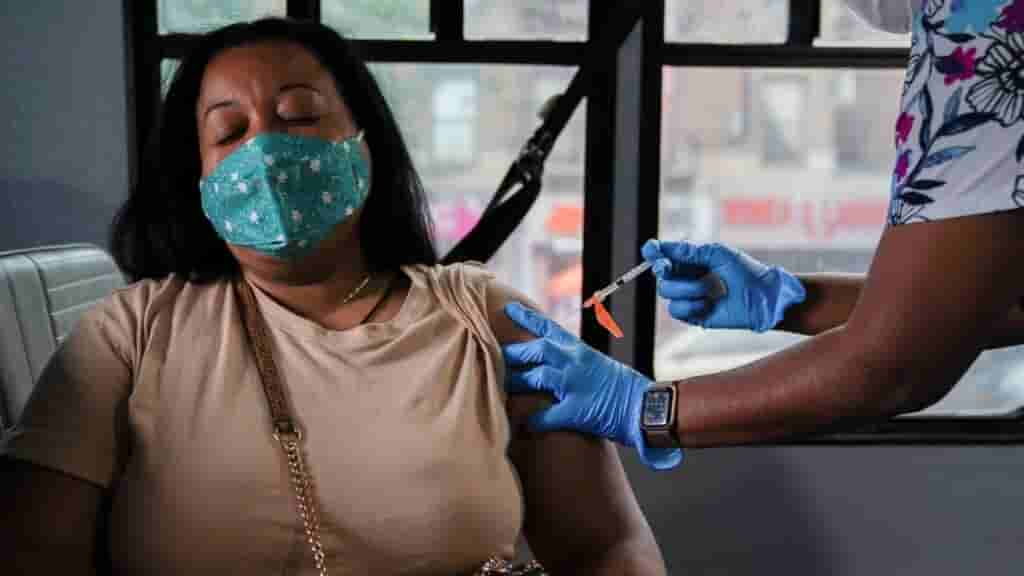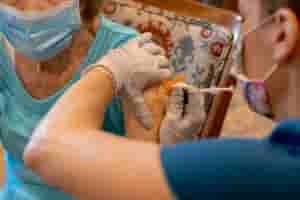The staff at the Food and Drug Administration is refusing to talk about the requirement or effectiveness of a COVID booster shot saying that the U.S. regulators have not validated all data available.
“There are many potentially relevant studies, but FDA has not independently reviewed or verified the underlying data or their conclusions,” states a 23-page document on the agency’s website. “Some of these studies, including data from the vaccination program in Israel, will be summarized during the September 17, 2021 VRBPAC meeting.”
According to the staff, some of the observational studies have recommended diminishing effectivity of the Pfizer vaccine over time against symptomatic infection or against the Delta variant while others have not, CNBC reported.
“Overall, data indicate that currently US-licensed or authorized COVID-19 vaccines still afford protection against severe COVID-19 disease and death in the United States,” the FDA officials said.

The FDA is looking for the data that includes efficacy numbers our of Israel where researchers released the observations studies demonstrating how effective is the Pfizer vaccine against infection diminished over time.
In another document issued on Wednesday, it claims that a third dose of the Pfizer vaccine six months after the second shot brings back protection from the infection of up t0 95%. But the FDA staff seems doubtful over the data presented since observational studies don’t follow the same standards of formal clinical trials.
“It should be recognized that while observational studies can enable understanding of real-world effectiveness, there are known and unknown biases that can affect their reliability,” agency staff said. “Furthermore, U.S.-based studies of post-authorization effectiveness of BNT162b2 may most accurately represent vaccine effectiveness in the U.S. population.”
On Friday, a staff report is set to brief the FDA’s Vaccines and Related Biological Products Advisory Committee to review Pfizer’s request to give approval for COVID booster shots. Although the document the agency released offers a hint of their stand regarding a third shot.
The Biden Administration is looking into offering booster shots to the public as soon as next week, awaiting approval from the FDA.
This move is part of President Joe Biden’s larger plan to combat the rising number of COVID-19 cases driven by the more transmissible delta variant.
Scientists and health experts constantly condemned Biden’s plan saying that the data presented by federal health officials were not convincing and describing the push for boosters shot as premature.
According to Dan Barouch, an immunologist at Harvard Medical School says that there is currently no consent in the biomedical community on boosters shot being offered to the general public. “There are senior experts who fall on different sides of the debate,” he said. “Right now, it’ll be interesting to see where the debate goes, but obviously it is known that the Biden administration has suggested that boosters are needed.”
The Biden administration has quoted three studies which were released by the Centers for Disease Control and Prevention showing that the vaccines’ protection against COVID-19 decreases after several months.
The administration’s plan that was outlined by senior health officials asks people to get a third shot after getting their second shot of either Pfizer or Moderna vaccine. Biden also said that scientists are evaluating if it should move the third shot by three months.
A group of scientists, including two senior FDA officials together with the World Health Organization in a published paper on Monday, said that booster shots are not needed. While the vaccine effectiveness decreases over time against mild diseases, protection against severe disease shows that it continues.
WHO officials Tuesday called on to wealthy nations to stop issuing COVID-19 vaccine booster shots to be able to make more shots available for poorer countries who are struggling to reach higher immunization rates.
“There are countries with less than 2% vaccination coverage, most of them in Africa, who are not even getting their first and second dose,” Director-General Tedros Adhanom Ghebreyesus said, adding: “And starting with boosters, especially giving it to healthy populations, is really not right.”
According to worldometer data, the United States has so far reported 42,479,780 coronavirus infections and 685,023 deaths since the beginning of the pandemic.

